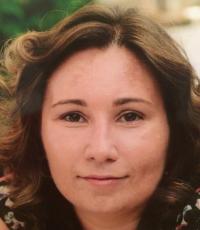SIG 10 - Social Interaction in Learning and Instruction
Coordinators



Mission statement
The special interest group "Social interaction in learning and instruction" (SIG 10) is devoted to the study of teaching-learning processes, understood as socially shared and culturally situated phenomena. It groups a wide range of approaches, which are rooted in different theoretical background, among which the Piagetian and the Vygotskian heritage. It also groups studies that examine a very wide range of teaching-learning situations, from kindergarten to university, from the workplace to informal learning, from traditional classes to experimental learning and multicultural settings.
In that sense, SIG 10 is touching upon issues which are central to various other Special Interest Groups in Earli. However the specificity of the approaches developed in SIG 10 is that its studies share two basic assumptions: first, that learning and instruction should be examined as processes, rather than outcomes; and second, that studying learning and instruction demands to take in account not only cognitive processes, but also, interactions between people, taking place around specific tasks, and under certain conditions.
Given the abundance of empirical findings gathered over the past twenty years under this general approach, the priorities of the SIG 10 as a collaborative group are: (1) develop theoretical models and understanding to account for the diversity of observed processes; (2) share and develop methodological expertise for accounting for social interactions in learning and instruction. Doing so, it also wishes to maintain and develop dialogues with other SIG group working on related themes.
In that sense, SIG 10 is touching upon issues which are central to various other Special Interest Groups in Earli. However the specificity of the approaches developed in SIG 10 is that its studies share two basic assumptions: first, that learning and instruction should be examined as processes, rather than outcomes; and second, that studying learning and instruction demands to take in account not only cognitive processes, but also, interactions between people, taking place around specific tasks, and under certain conditions.
Given the abundance of empirical findings gathered over the past twenty years under this general approach, the priorities of the SIG 10 as a collaborative group are: (1) develop theoretical models and understanding to account for the diversity of observed processes; (2) share and develop methodological expertise for accounting for social interactions in learning and instruction. Doing so, it also wishes to maintain and develop dialogues with other SIG group working on related themes.
Previous SIG Coordinators
Senior Coordinators:
- Nathalie Muller Mirza
- Åsa Mäkitalo
- Aleksander Baucal
- Sanne Akkerman
- Tania Zittoun
- Eva Hjorne
- Paul Vedder
- Kristiina Kumpulainen
- Margarida Cesar
Junior Coordinators:
Newsletters
SIG Newsletter Editor: Jasmiina Leskinen - University of Helsinki
- Newsletter November 2011
- Newsletter April 2012
- Newsletter November 2012
- Newsletter May 2013
- Newsletter May 2014
- Newsletter March 2015
- Newsletter December 2015
- Newsletter March 2016
- Newsletter September 2016
- Newsletter January 2018
- Newsletter October 2018
- Newsletter October 2019
- Newsletter December 2020
- Newsletter November 2021
- Newsletter November 2022
Activities
SIG 10, 21 & 25 Biennial Conference 2022
Theme
DIALOGUE, DIVERSITY AND INTERDISCIPLINARITY IN THE FIELD OF LEARNING AND INSTRUCTION
Dates
September 7th-9th 2022
Place
University of Belgrade
SIG 10 Members' Meeting 2022
Theme
The SIG 10 Members' meeting will be organized during the 2022 conference
Dates
TBA
Place
Belgrade, Serbia
